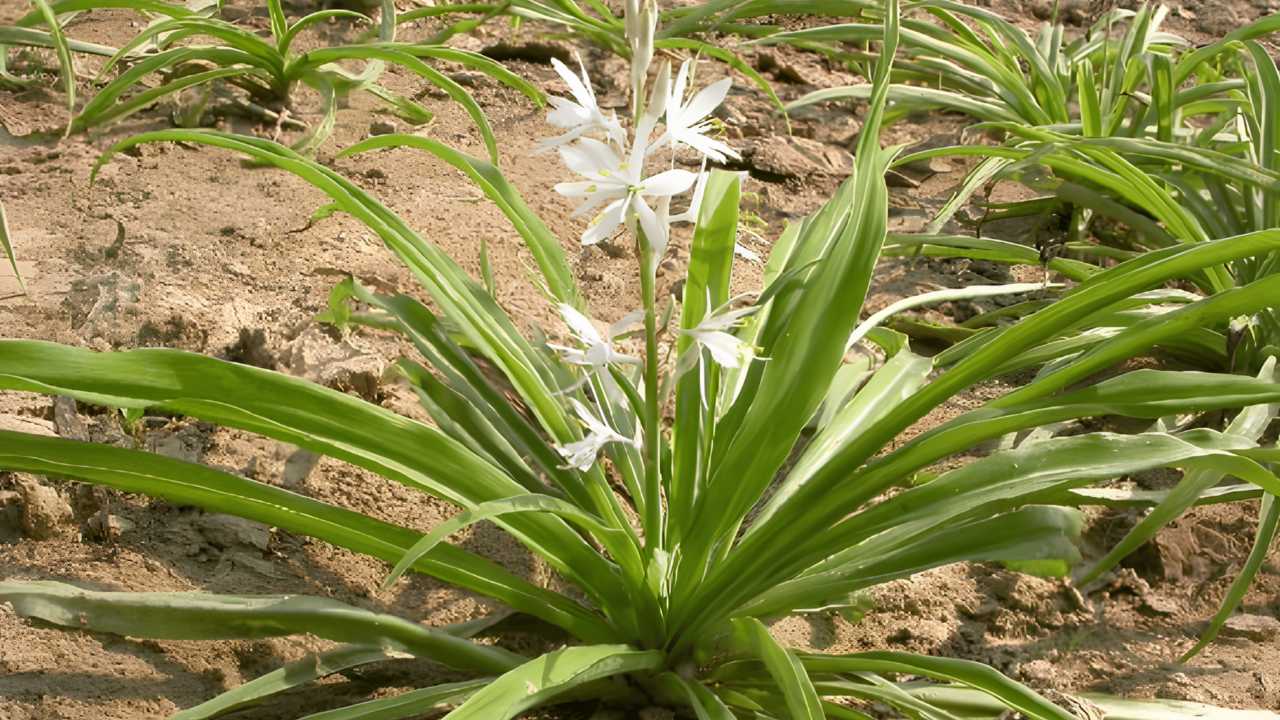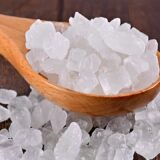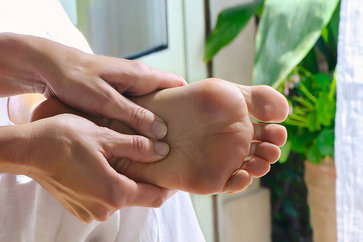Safed Musli: Benefits, Nutrition, Precautions, and More!
Safed Musli, scientifically known as Chlorophytum borivilianum, is a herbaceous plant indigenous to the Indian subcontinent. It has been revered for centuries in traditional Indian medicine systems, particularly Ayurveda, for its remarkable therapeutic properties.
Often referred to as “white gold” or “divine medicine,” this unassuming plant has garnered significant attention for its potential health benefits. Rich in essential nutrients and bioactive compounds, Safed Musli has been traditionally used to support overall well-being, vitality, and physical stamina.
Its adaptogenic properties are believed to help the body adapt to stress, promoting balance and resilience. Over the years, scientific research has begun to unravel the complex mechanisms behind Safed Musli’s therapeutic actions, offering promising insights into its potential applications in modern healthcare.
Safed Musli in Ayurveda & Traditional Medicine
Ayurveda, the ancient Indian system of medicine, places immense importance on Safed Musli.
Classified as a “Vajikarana” herb, it is primarily recognized for its rejuvenating and aphrodisiac properties. Beyond its sexual health benefits, Safed Musli is also valued for its potential to:
- Boost immunity: Strengthen the body’s natural defense mechanisms.
- Enhance vitality: Improve overall energy levels and stamina.
- Promote digestion: Aid in proper digestion and absorption of nutrients.
- Relieve stress: Help manage stress and anxiety.
The deep-rooted belief in the efficacy of Safed Musli has led to its widespread use in various traditional medicinal preparations.
Its reputation as a potent natural remedy has also spurred scientific interest in exploring its pharmacological properties.
Names of Safed Musli in Different Languages
- Hindi: Safed musali, Safed Musli
- Kannada: Bili Mushali
- Uttar Pradesh: Jhirna
- English: White Musali
- Marathi: Safed Musli
- Gujarati: Dholi Musali, Ujali Musli
- Tamil: Tannir Bittang
- Telugu: Sallogadda
- Urdu: Musli
- Punjabi: Syahoo Musli
- Afghani: Sakakulae
- Malayalam: Vellari
- Bengali: Swet Musli
- Oriya: Sita Musli
- Assamese: Safed Musli
- Nepali: Safed Musli
- Kashmiri: Shveta Musli
- Sindhi: Safed Musli
What is Safed Musli?
Safed Musli, often hailed as the “white gold” of Ayurveda, is a perennial herb scientifically known as Chlorophytum borivilianum.
It is primarily cultivated for its tuberous roots, which are the prized part used in medicinal preparations.
Renowned for its rejuvenating and aphrodisiac properties, Safed Musli has been a cornerstone of traditional Indian medicine for centuries.
Safed Musli in Ayurveda
In Ayurveda, Safed Musli, or Chlorophytum borivilianum, is classified as a Rasayana, a rejuvenative herb with potent properties to enhance overall well-being.
It is considered a potent Vajikarana, meaning it is believed to improve sexual vitality and fertility.
Ayurvedic practitioners believe that Safed Musli:
- Balances Vata Dosha: It is particularly beneficial in pacifying the Vata dosha, which is responsible for movement, creativity, and nervous system function.
- Improves Ojas: Ojas are the vital essence of life, and Safed Musli is considered to nourish and strengthen it.
- Nourishes Dhatus: The seven fundamental tissues of the body (Rasa, Rakta, Mamsa, Meda, Asthi, Majja, and Shukra) are believed to be nourished by Safed Musli.
Traditional Formulations and Recipes
Safed Musli is a key ingredient in numerous Ayurvedic formulations. It is often combined with other herbs to enhance its effects. Some popular formulations include:
- Chyawanprash: A classic Ayurvedic rejuvenative jam, often containing Safed Musli for its revitalizing properties.
- Vajikarana Ghrita: A ghee-based formulation enriched with Safed Musli and other aphrodisiacs.
- Ashwagandha and Safed Musli combination: This combination is often used for stress management, sexual health, and overall vitality.
Note: These are just a few examples, and the specific formulation and dosage should be determined by a qualified Ayurvedic practitioner.
Integration in Panchakarma and Other Treatments
Safed Musli can be incorporated into various Panchakarma treatments, Ayurvedic detoxification procedures. It is often used in:
- Rasayana therapy: To rejuvenate the body and mind.
- Vajikarana therapy: To enhance sexual health and fertility.
- Balya therapy: To improve strength and immunity.
Safed Musli can also be used as a supportive herb during other Ayurvedic treatments to enhance their overall effectiveness.
Botanical Classification and Description
- Kingdom: Plantae
- Order: Asparagales
- Family: Asparagaceae
- Subfamily: Agavoideae
- Genus: Chlorophytum
- Species: Chlorophytum borivilianum
Safed Musli is a herbaceous plant with lanceolate leaves. It thrives in tropical wet forests and is predominantly found in the peninsular region of India.
The plant produces white flowers followed by small, black seeds. However, it is primarily propagated through its tuberous roots.
Where is safed musli found in India?
Safed Musli is native to India, primarily found in the Western Ghats and the central Indian plateau.
Due to its increasing demand, cultivation of this herb has expanded to other parts of the country.
While it can be grown in different soil types, it prefers sandy loam with good drainage.
The plant requires a warm and humid climate for optimal growth.
Overharvesting and habitat destruction have led to a decline in wild populations, making cultivation essential for sustainable supply.
Key Nutrients and Active Compounds
Safed Musli is a nutritional powerhouse, packed with essential compounds that contribute to its therapeutic properties. While specific nutritional data might be limited, the herb is known to contain:
- Saponins: These steroidal glycosides are believed to be responsible for many of Safed Musli’s medicinal benefits, including its aphrodisiac, anti-inflammatory, and immune-boosting properties.
- Polysaccharides: These complex carbohydrates are associated with immune enhancement and antioxidant effects.
- Stigmasterol and Hecogenin: These compounds contribute to Safed Musli’s overall health-promoting properties.
- Vitamins and Minerals: Although specific data is scarce, Safed Musli is likely to contain essential vitamins and minerals in trace amounts.
Comparison with Other Medicinal Herbs
While Safed Musli stands out for its specific properties, it shares similarities with other renowned Ayurvedic herbs:
- Ashwagandha: Both herbs are revered as adaptogens, helping the body resist stressors. However, Ashwagandha is more widely studied for its stress-reducing and anxiety-managing effects.
- Shatavari: Often compared to Safed Musli for its rejuvenating properties, Shatavari is particularly known for its benefits for women’s health.
- Shilajit: Another potent Ayurvedic herb, Shilajit is rich in minerals and organic compounds, offering a broader spectrum of benefits compared to Safed Musli.
It’s essential to note that while these herbs share some overlapping properties, each has its unique therapeutic profile. A comprehensive understanding of their individual characteristics is crucial for effective herbal formulations.
Safed Musli Benefits
Safed Musli is revered in Ayurveda for its rejuvenating properties, boosting sexual health, immunity, and energy levels while potentially aiding in stress management.
1. Enhances Sexual Health
Safed Musli has long been celebrated for its potent ability to enhance sexual health and overall well-being. It has been a staple in Ayurvedic medicine for centuries, revered for its rejuvenating and revitalizing properties.
Aphrodisiac Properties
One of the most prominent benefits of Safed Musli is its reputation as a potent aphrodisiac. It is believed to:
- Increase libido: Stimulates sexual desire and arousal in both men and women.
- Improve sexual performance: Enhances sexual stamina and endurance.
- Enhance sexual satisfaction: Contributes to more fulfilling sexual experiences.
The herb’s aphrodisiac properties are attributed to its unique blend of nutrients and bioactive compounds, which work synergistically to support sexual health.
Safed Musli Benefits for Male and Women
Safed Musli offers advantages for both genders:
For Men:
- Improves sperm quality and quantity.
- Helps address erectile dysfunction.
- Boosts testosterone levels.
- Supports reproductive health.
For Women:
- Regulates menstrual cycles.
- Enhances fertility.
- Alleviates menopausal symptoms.
- Promotes overall reproductive well-being.
It’s important to note that while Safed Musli has been traditionally used for these purposes, scientific research is still ongoing to fully understand its mechanisms of action.
2. Boosts Immunity
Safed Musli has gained recognition not only for its sexual health benefits but also for its potential to bolster the immune system.
Immune-Modulating Effects
The immune system is a complex network of cells and organs that protect the body from infections. Safed Musli is believed to have immune-modulating properties, meaning it can help regulate the immune response. This can be beneficial in several ways:
- Enhancing immune function: It may help strengthen the body’s natural defenses against pathogens.
- Reducing inflammation: Inflammation is a normal immune response, but chronic inflammation can be harmful. Safed Musli may help balance inflammatory responses.
- Balancing immune response: It can help prevent both overactive and underactive immune responses, contributing to overall immune health.
Prevention of Common Illnesses
A robust immune system is crucial in preventing common illnesses such as:
- The common cold: Safed Musli may help reduce the frequency and severity of colds.
- Flu: By strengthening the immune system, it can contribute to better protection against influenza.
- Other infections: The herb’s immune-boosting properties may help ward off various infections.
While more scientific research is needed to fully elucidate the mechanisms behind Safed Musli’s immune-enhancing effects, its traditional use and anecdotal evidence suggest its potential role in supporting overall health and well-being.
3. Improves Strength and Stamina
Safed Musli has garnered attention for its potential to enhance physical performance and endurance.
Uses in Improving Physical Performance
Traditional medicine has long recognized Safed Musli’s ability to:
- Increase energy levels: Providing a sustained energy boost to power through workouts.
- Enhance stamina: Enabling longer and more intense physical activity.
- Promote muscle growth: Supporting lean muscle development and recovery.
- Reduce fatigue: Combating tiredness and exhaustion.
Benefits for Athletes and Bodybuilders
Due to its potential to improve strength, stamina, and recovery, Safed Musli has become increasingly popular among athletes and bodybuilders. It is believed to:
- Improve athletic performance: By increasing endurance and reducing fatigue.
- Aid in muscle building: By supporting protein synthesis and muscle repair.
- Accelerate recovery: Helping athletes bounce back faster between training sessions.
While more scientific research is needed to fully understand the mechanisms behind Safed Musli’s effects on physical performance, its traditional use and anecdotal evidence suggest its potential benefits for athletes and fitness enthusiast.
4. Manages Stress and Anxiety
Safed Musli has emerged as a potential ally in the battle against stress and anxiety.
Adaptogenic Properties
One of the key factors contributing to Safed Musli’s stress-relieving benefits is its adaptogenic nature. Adaptogens are substances believed to help the body resist stressors by increasing resistance to physical and mental fatigue. Safed Musli is thought to:
- Balance hormones: Regulate stress hormones like cortisol, helping to restore hormonal balance.
- Enhance resilience: Improve the body’s ability to cope with stress and adversity.
- Promote relaxation: Induce a sense of calm and relaxation.
Impact on Mental Health and Well-being
Beyond stress reduction, Safed Musli may also positively influence overall mental health and well-being by:
- Improving mood: Contributing to a more positive outlook on life.
- Enhancing cognitive function: Supporting mental clarity and focus.
- Promoting better sleep: Addressing sleep disturbances often associated with stress.
While research on Safed Musli’s specific effects on mental health is still in its early stages, its traditional use and anecdotal evidence suggest its potential as a natural approach to managing stress and anxiety.
5. Supports Reproductive Health
Safed Musli has been traditionally used to support reproductive health in both men and women.
Fertility Enhancement
Safed Musli is often included in Ayurvedic formulations aimed at improving fertility. It is believed to:
- Enhance sperm quality: Increase sperm count, motility, and viability.
- Regulate menstrual cycles: Promote regular ovulation.
- Balance hormones: Optimize reproductive hormone levels.
While more scientific research is needed to confirm these effects, Safed Musli’s traditional use and anecdotal evidence suggest its potential benefits for couples trying to conceive.
Benefits During Pregnancy and Postpartum
While there is limited scientific research on Safed Musli’s use during pregnancy and postpartum, it’s essential to consult with a healthcare provider before using any herbal supplement during these critical periods.
Traditionally, Safed Musli has been used to:
- Support maternal health: Maintain overall well-being during pregnancy.
- Promote lactation: Increase milk production postpartum.
- Aid in postpartum recovery: Help the body recover after childbirth.
It’s crucial to approach the use of Safed Musli during pregnancy and postpartum with caution and under the guidance of a qualified healthcare professional.
6. Aids in Weight Management
While Safed Musli is primarily known for its rejuvenating and immune-boosting properties, some anecdotal evidence suggests it might play a role in weight management. However, scientific research is limited in this area.
Role in Metabolism and Fat Reduction
Safed Musli’s potential impact on weight management could be attributed to its potential to:
- Boost metabolism: A faster metabolism can help burn calories more efficiently.
- Reduce fat accumulation: By supporting overall metabolic health, it might indirectly influence fat reduction.
Impact on Muscle Mass
Maintaining or increasing muscle mass is crucial for weight management as muscle tissue burns more calories than fat. While direct evidence is lacking, Safed Musli’s potential to enhance energy levels and stamina could indirectly support muscle growth and preservation.
It’s important to note that Safed Musli alone is unlikely to induce significant weight loss. A holistic approach combining a balanced diet, regular exercise, and lifestyle modifications is essential for achieving and maintaining a healthy weight.
How to Use Safed Musli
Safed Musli is available in various forms, making it convenient to incorporate into your daily routine.
Different Forms
- Powder: This is the most common form and can be easily incorporated into different preparations.
- Capsules: Pre-measured doses for easy consumption.
- Fresh Root: Less common but can be used in certain preparations.
Recommended Dosages
The appropriate dosage of Safed Musli can vary depending on the individual, their health condition, and the desired outcome. It’s generally recommended to start with a lower dose and gradually increase it as needed.
Disclaimer: The information provided here is for general knowledge and informational purposes only, and does not constitute medical advice. Always consult with a healthcare professional before starting any new supplement or treatment.
Preparation Methods
Safed Musli Powder:
- Can be mixed with water, milk, or juice.
- Can be added to smoothies or yogurt.
- Can be used in Ayurvedic formulations.
Capsules:
- Taken orally as directed on the product label.
Fresh Root:
- Less common, but can be used in some traditional preparations.
Note: The taste of Safed Musli can be earthy and slightly bitter. Some people prefer to mix it with sweeteners or other ingredients to mask the taste.
Important Considerations:
- Quality: Ensure you purchase Safed Musli from a reputable source.
- Consultation: Consult with an Ayurvedic practitioner or healthcare provider for personalized guidance.
- Pregnancy and Breastfeeding: Avoid Safed Musli during pregnancy and breastfeeding without medical advice.
- Interactions: Inform your healthcare provider about any medications you’re taking to avoid potential interactions.
By understanding the different forms of Safed Musli and incorporating it into your routine appropriately, you can potentially harness its benefits for overall well-being.
Safed Musli (Chlorophytum borivilianum) is an Ayurvedic herb with a long history of use for various health conditions. It has garnered significant attention for its potential benefits, especially in the realm of sexual health, immunity, and overall well-being.
Scientific references:
- Chlorophytum borivilianum (Safed Musli) : Nature’s Wonder Gift(1)
- Safed musli (Chlorophytum borivilianum): a review of its botany, ethnopharmacology and phytochemistry(2)
- Clinical evaluation of root tubers of Shweta Musali (Chlorophytum borivilianum L.) and its effect on semen and testosterone(3)
- Safed musli (Chlorophytum borivilianum): Ethnobotany, phytochemistry and pharmacological updates(4)

























